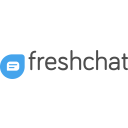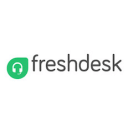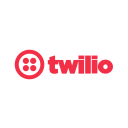LiveChat vs Intercom: Choosing the best chat solution
- 01LiveChat vs Intercom: overview
- 02What's the difference between LiveChat and Intercom?
- 03LiveChat pros and cons
- 04Intercom pros and cons
- 05LiveChat compared to Intercom
- 06Intercom compared to LiveChat
- 07Features comparison
- 08LiveChat vs Intercom: Which is the best for your business?
- 09Promotions on Customer Support software
- 10Alternatives to LiveChat & Intercom
Access up to $150 savings on LiveChat & $3,108 on Intercom
Access up to $150 savings on LiveChat & $3,108 on Intercom
Choosing the right customer messaging platform is crucial for enhancing customer service, improving response times, and building better relationships with your customers. These tools are essential for providing real-time support and proactive engagement, which can significantly increase customer satisfaction and loyalty. Additionally, a robust messaging platform can streamline your customer communication processes, integrate with other tools, and provide valuable insights into customer interactions.
With a variety of options available, selecting the best customer messaging tool for your business can be a daunting task. In this article, we assist you by offering a detailed comparison of two popular customer messaging tools, LiveChat and Intercom. By exploring their main features and key differences, you'll be better equipped to make an informed decision that aligns with your business needs and goals.
LiveChat vs Intercom: overview
LiveChat and Intercom are two leading players in the field of customer communication and support platforms, each offering distinct advantages tailored to meet diverse user needs.
LiveChat is highly regarded for its straightforward and efficient chat capabilities, making it especially popular among businesses focused on providing immediate customer support. It offers a user-friendly interface that allows for quick interactions, easy customization, and effective management of customer conversations. On the other hand, Intercom provides a more comprehensive suite of customer communication tools that extend beyond live chat. It includes automated messaging, targeted email campaigns, and an integrated help desk.
To make an informed choice between LiveChat and Intercom, it's essential to consider your specific business requirements, customer engagement strategies, and communication goals. LiveChat may be the preferred option for teams that need a focused, easy-to-use live chat service, while Intercom could be better suited for businesses looking for a more expansive suite of tools to manage complex customer relationships and communications across multiple channels.
What's the difference between LiveChat and Intercom?
LiveChat and Intercom are distinguished players in the customer communication management arena, each offering distinctive features tailored to different business needs. Understanding the differences between these two platforms can greatly aid in choosing the most suitable solution for your customer engagement strategies.
LiveChat specializes in providing a streamlined, direct communication interface between businesses and their customers. Known for its simplicity and effectiveness, LiveChat is primarily focused on enhancing customer support through real-time chat functionality. It boasts a highly intuitive interface that makes it easy for support teams to manage multiple conversations, offering features such as canned responses and chat tags to increase efficiency. LiveChat is particularly beneficial for businesses that require a straightforward, focused solution to handle customer inquiries quickly and boost sales conversions through immediate interaction.
Intercom, in contrast, offers a broader suite of services that go beyond just live chat. It is designed as a more comprehensive customer relationship platform, integrating email marketing, customer support, and a help desk. Intercom excels in creating personalized customer experiences through targeted messaging based on user behavior and data. Its capabilities include automated chatbots, triggered emails, and an advanced segmentation engine, making it ideal for businesses that want to engage customers throughout their lifecycle—from acquisition through support to retention.
The deployment of these tools also shows significant differences: LiveChat is excellent for organizations that prioritize ease of use and rapid response times without the need for extensive customization. Meanwhile, Intercom might require a steeper learning curve due to its extensive features but provides powerful customization options suited for more complex deployment scenarios, where varied communication strategies are necessary.
Finally, pricing structures of both platforms also differ, with LiveChat generally offering more straightforward, volume-based pricing, whereas Intercom’s model is more feature-based, scaling with the depth of engagement tools and customization options used. Businesses must carefully consider their specific needs and customer engagement goals when deciding between LiveChat and Intercom, as each platform’s strengths cater to different aspects of customer communication and relationship management.

$150 credits (Team, Business and Enterprise Plans) on LiveChat
Get $150 credits (Team, Business and Enterprise Plans) on LiveChat and up to $150 savings with Secret.
LiveChat pros and cons
What are the advantages of LiveChat?
- Real-time customer support: LiveChat enables instant communication between customers and support agents, allowing for quick problem resolution and enhancing customer satisfaction.
- Convenience: Customers appreciate the convenience of LiveChat as they can get their queries addressed without having to make a phone call or send an email. It's particularly popular among younger demographics who prefer text-based communication.
- Multitasking: Support agents can handle multiple chat sessions simultaneously, increasing efficiency and reducing the need for additional staff during peak times.
- Analytics and insights: LiveChat platforms often come with analytics features that provide valuable insights into customer behavior, preferences, and pain points. This data can be used to improve products, services, and customer support strategies.
- Cost-effective: Compared to phone support, LiveChat can be more cost-effective since it allows agents to handle multiple conversations simultaneously, reducing the need for a large support team.
What are the disadvantages of LiveChat?
- Dependence on internet connection: Both customers and support agents need a stable internet connection to use LiveChat effectively. Poor internet connectivity can lead to delays and interruptions in communication.
- Potential for miscommunication: Written communication can sometimes be ambiguous or prone to misinterpretation, leading to misunderstandings between customers and support agents.
- Limited personalization: While LiveChat allows for real-time interaction, it may lack the personal touch of face-to-face or phone communication. Building rapport with customers can be more challenging in a text-based environment.
- Availability constraints: LiveChat support is typically available only during certain hours, which may not align with customers' needs, especially in different time zones.
- Training requirements: Support agents need to be trained in effectively using LiveChat software, managing multiple conversations simultaneously, and maintaining a professional tone in written communication. This can require additional time and resources.
Compare LiveChat to other tools
Intercom pros and cons
What are the advantages of Intercom?
- Unified communication platform: Intercom provides a unified platform for businesses to communicate with their customers through various channels like chat, email, and in-app messages. This consolidation can streamline customer communication management.
- Personalized messaging: Intercom allows businesses to segment their audience based on various criteria and send targeted, personalized messages. This can lead to higher engagement and conversion rates.
- Automation and workflow: With Intercom's automation features, businesses can set up workflows to trigger messages based on user behavior or specific events. This automation can save time and ensure timely responses to customer inquiries.
- Rich customer data: Intercom collects and centralizes rich customer data, including conversation history, user activity, and preferences. This data can help businesses better understand their customers and tailor their communication strategies accordingly.
- Scalability: Intercom is scalable and suitable for businesses of all sizes, from startups to enterprises. Its features and pricing plans can be customized to accommodate the needs and growth trajectory of different businesses.
What are the disadvantages of Intercom?
- Cost: Intercom can be relatively expensive, especially for small businesses or startups with limited budgets. The pricing structure is based on the number of users and features required, which can add up quickly.
- Learning curve: Intercom's extensive feature set and customization options may have a steep learning curve for new users. It may require time and resources to fully understand and leverage its capabilities.
- Integration challenges: While Intercom offers integrations with many popular tools and platforms, integrating it into an existing tech stack can sometimes be challenging, especially for businesses with complex systems or unique requirements.
- Over-reliance on automation: While automation can improve efficiency, over-reliance on automated messages may lead to a lack of human touch and personalization in customer interactions, potentially diminishing the overall customer experience.
- Support limitations: Some users have reported limitations in Intercom's customer support, particularly for users on lower-tier plans. Longer response times or limited support options can be frustrating, especially during critical issues or technical difficulties.
Compare Intercom to other tools
LiveChat compared to Intercom
LiveChat and Intercom are both powerful customer communication platforms, each with its distinct advantages. LiveChat excels in providing real-time customer support, offering instant solutions and personalized assistance. Its simplicity and ease of use make it a popular choice for businesses looking to enhance their customer service experience.
On the other hand, Intercom offers a comprehensive solution with advanced features like targeted messaging and automation, ideal for businesses focused on customer engagement and conversion optimization. While LiveChat prioritizes immediate assistance, Intercom provides a more holistic approach to customer communication, catering to diverse needs and scalability requirements within businesses of varying sizes.
Is LiveChat better than Intercom?
Determining whether LiveChat is better than Intercom hinges on what aspects of customer communication a business values most. If the priority is to offer real-time, direct support where agents can solve problems instantly, LiveChat likely holds the advantage with its focus on efficient, user-friendly live chat interfaces.
Conversely, if a business seeks to leverage extensive customer interactions through automated messaging and complex customer journey tracking to boost engagement and conversions, then Intercom's robust feature set might be more beneficial.
What is LiveChat best used for?
LiveChat is best used for providing real-time customer support and assistance. It enables businesses to engage with their customers instantly, addressing queries, resolving issues, and offering guidance in a timely manner. LiveChat's text-based communication platform allows for seamless interaction between customers and support agents, fostering a personalized and efficient customer service experience. It is particularly effective for handling complex inquiries, troubleshooting technical issues, and building rapport with customers through immediate, one-on-one communication.
LiveChat is well-suited for businesses across various industries seeking to enhance customer satisfaction, improve response times, and establish a strong online presence through proactive customer engagement.
Can LiveChat replace Intercom?
LiveChat and Intercom serve distinct purposes within customer communication strategies, making it challenging for LiveChat to entirely replace Intercom. While LiveChat excels in providing real-time customer support with its instant messaging capabilities, Intercom offers a broader range of features, including targeted messaging, automation, and comprehensive customer data management. Intercom's versatility and advanced functionalities make it a valuable tool for customer engagement, conversion optimization, and personalized communication across multiple channels.
While LiveChat is effective for immediate assistance, Intercom's robust suite of tools provides businesses with the flexibility and scalability needed to create impactful customer experiences beyond just live chat support.
Is LiveChat cheaper than Intercom?
Determining whether LiveChat is cheaper than Intercom depends on various factors such as the size of the business, required features, and usage volume. Generally, LiveChat’s pricing plans tend to bee straightforward with lower entry costs, making it an attractive option for smaller businesses or those primarily focused on live chat support.
However, Intercom's pricing structure may offer more value for businesses requiring a comprehensive customer communication solution with advanced features like automation, targeted messaging, and detailed analytics.
Is there a better Customer Support software than LiveChat?
When considering the best software for real-time customer support, it's crucial to explore alternatives to LiveChat to ensure you find the optimal solution for your business's requirements.
Several notable alternatives to LiveChat in the realm of customer support and engagement include Intercom, Zendesk Chat, Freshchat, and Drift.
Selecting the ideal customer support software depends on factors such as your organization's size, customer base, desired features, and budget. If you prioritize instant communication, ease of use, and personalized support, LiveChat may be a strong contender. However, evaluating these alternatives can offer valuable insights and aid you in selecting the most suitable platform to enhance your customer service experience.
$150 credits (Team, Business and Enterprise Plans) on LiveChat
Get $150 credits (Team, Business and Enterprise Plans) on LiveChat and up to $150 savings with Secret.
Intercom compared to LiveChat
Intercom and LiveChat are both prominent tools for customer communication, each with distinct strengths. Intercom offers a comprehensive platform encompassing live chat, targeted messaging, automation, and detailed customer data management. Its versatility makes it suitable for businesses seeking to engage customers across various channels and optimize conversions.
In contrast, LiveChat specializes in real-time support, providing immediate assistance and fostering personalized interactions between customers and support agents. While Intercom excels in its breadth of features and scalability, LiveChat prioritizes simplicity and efficiency in live chat support.
Is Intercom better than LiveChat?
Evaluating whether Intercom is better than LiveChat depends largely on the business's objectives and the nature of its customer interactions. Intercom shines as a versatile platform that integrates multiple communication channels, making it ideal for businesses aiming to enhance customer engagement through sophisticated targeting and automation. This comprehensive approach allows for a richer, more tailored user experience and can significantly impact customer relationship management and conversion rates.
Conversely, if a company's focus is primarily on providing streamlined, efficient customer support through live chat, then LiveChat's specialized, no-frills approach might be the preferred option.
What is Intercom best used for?
Intercom is best used for comprehensive customer communication and engagement. It serves as a versatile platform for businesses to interact with customers across various channels, including live chat, email, and in-app messaging. Intercom excels in its ability to personalize communication through targeted messaging, automation, and detailed customer data analysis. It's ideal for businesses looking to optimize customer engagement, improve conversion rates, and enhance the overall customer experience.
Whether for proactive customer support, marketing campaigns, or sales outreach, Intercom provides the tools necessary to foster meaningful connections with customers throughout their journey, ultimately driving growth and loyalty for businesses.
Can Intercom replace LiveChat?
While Intercom offers a comprehensive suite of customer communication tools, it may not entirely replace LiveChat for businesses solely seeking real-time support. LiveChat specializes in immediate assistance, facilitating quick resolutions to customer queries through its intuitive chat interface.
However, Intercom's broader capabilities, including targeted messaging, automation, and detailed customer data management, make it a robust alternative for businesses looking to enhance overall customer engagement and streamline communication across multiple channels. While Intercom can fulfill many of LiveChat's functions, whether it can fully replace it depends on the specific needs and priorities of each business regarding customer support and communication strategies.
Is Intercom cheaper than LiveChat?
When comparing the costs of LiveChat and Intercom, it's essential to consider the specific needs of your business. For businesses that prioritize extensive customer communication tools and advanced capabilities such as automation and analytics, Intercom’s pricing options might represent a better value despite potentially higher costs.
In contrast, for companies looking for a focused solution mainly for live chat support, LiveChat’s more straightforward and often cheaper pricing plans could be more cost-effective.
Is there a better Collaboration software than Intercom?
When considering the best software for customer communication and engagement, it's crucial to explore alternatives to Intercom to ensure you find the optimal solution for your business's requirements.
Several notable alternatives to Intercom in the realm of customer communication and support include Zendesk, Freshdesk, Help Scout, and Zoho Desk.
Selecting the ideal customer communication software depends on factors such as your organization's size, customer base, desired features, and budget. If you prioritize comprehensive customer communication tools with advanced features like targeted messaging and automation, Intercom may be a strong contender. However, evaluating these alternatives can offer valuable insights and aid you in selecting the most suitable platform to enhance your customer service experience.
1 year free on the Advanced plan on Intercom
Get 1 year free on the Advanced plan on Intercom and up to $3,108 savings with Secret.
Features comparison
LiveChat's Intuitive Interface Surpasses Intercom for User-Friendliness
When comparing the ease-of-use of LiveChat and Intercom, LiveChat edges ahead of Intercom. LiveChat boasts an intuitive interface designed for seamless navigation, catering to both seasoned professionals and novices alike. With its clean, clutter-free dashboard, LiveChat minimizes complexity, prioritizing user experience. Setting up and customizing chat tools is a breeze thanks to its user-friendly settings and accessible features.
For instance, LiveChat's straightforward setup process allows businesses to swiftly integrate the tool into their websites without hassle. While Intercom also garners praise for its user-friendliness, some users find its learning curve slightly steeper, especially for those lacking technical expertise.
Intercom's Extensive Integrations Outshine LiveChat
Analyzing the integration possibilities of LiveChat and Intercom, it becomes evident that Intercom surpasses LiveChat in this regard. Intercom boasts a wide array of integrations, offering businesses a comprehensive toolkit to connect with essential platforms like marketing automation systems, CRM software, and data analytics tools. For example, Intercom seamlessly integrates with popular platforms such as HubSpot, Salesforce, and Google Analytics, enabling businesses to streamline their workflows and centralize customer data management.
While LiveChat also offers integration options, its selection is comparatively narrower. This disparity in integrations could potentially limit the optimization of overall business processes, especially for businesses relying on multiple tools for various functions.
LiveChat's Ticket Management Enhances Immediate Customer Support
LiveChat distinguishes itself by offering comprehensive ticket management directly from the platform, enabling businesses to address queries that cannot be immediately resolved via chat. Its robust categorization system ensures that tickets are efficiently routed to the appropriate agents for resolution. For instance, LiveChat allows agents to prioritize tickets based on urgency or complexity, ensuring timely responses and efficient issue resolution.
While Intercom also facilitates customer service, its emphasis lies more on automating conversations rather than directly optimizing agent performance. In this aspect, LiveChat gains an edge for prioritizing immediate human interaction and resolution, ensuring enhanced customer satisfaction and support efficiency.
Intercom's Robust Chatbot Capabilities Surpass LiveChat
Intercom distinguishes itself with its seamless integration and deployment of chatbots on websites and applications, ensuring swift delivery of automated responses. For instance, Intercom's intuitive interface allows businesses to easily configure chatbots to handle common queries, freeing up human agents for more complex tasks.
While LiveChat offers features like predefined answers to expedite responses, its focus on chatbot setup and automation is not as pronounced as Intercom's. Therefore, for businesses seeking comprehensive automation capabilities to streamline customer interactions, Intercom emerges as the superior choice, providing a robust solution for optimizing customer support efficiency and responsiveness.
Intercom's Multilingual Support Elevates Customer Experience
Intercom sets itself apart by automatically detecting and responding in customers' preferred languages, enhancing communication with diverse audiences. For instance, Intercom's language detection feature ensures that responses are tailored to each customer's linguistic preferences, fostering a more inclusive and personalized support experience.
While LiveChat provides support across various channels like SMS, Whatsapp, and Facebook, it lacks dedicated multilingual support features, giving Intercom a distinct advantage in this regard. Therefore, for businesses operating in multilingual environments or targeting international markets, Intercom emerges as the superior choice, facilitating seamless communication and customer engagement across language barriers.
LiveChat and Intercom Provide Comparable Robust Reporting Tools for Optimizing Customer Interactions
Both LiveChat and Intercom offer extensive reporting tools to track key performance metrics and optimize customer interactions. LiveChat provides insights into various aspects of chat handling, including user satisfaction, response time, and chat duration. For example, LiveChat's reporting dashboard allows businesses to monitor agent performance, identify trends, and make data-driven decisions to improve customer support efficiency.
Similarly, Intercom offers robust analytics features to measure response times, conversion rates, and customer engagement metrics across different communication channels. This parity in reporting capabilities ensures that businesses using either platform can effectively monitor and enhance their customer interactions to drive satisfaction and loyalty.
LiveChat Advances Ahead of Intercom in Data Security Measures
Both LiveChat and Intercom prioritize safeguarding sensitive information in today's digital landscape. However, LiveChat places a distinct emphasis on data security, implementing robust measures to protect both agent and user data. For instance, LiveChat encrypts every connection to ensure the confidentiality and integrity of transmitted data, reducing the risk of unauthorized access or data breaches. Additionally, LiveChat offers features to block spammers, further enhancing security protocols.
While Intercom does collect customer data for personalized service, its focus on explicit security measures may be less pronounced. Therefore, businesses with stringent security requirements may favor LiveChat for its dedicated approach to data protection.
Subscribe to our newsletters.
No FOMO here. Stay up-to-date on all the latest deals and news with our monthly newsletter straight to your inbox like 125,000+ entrepreneurs (+ Get 10% off on on our Premium Membership!)
LiveChat vs Intercom: Which is the best for your business?
LiveChat is the best tool for you if:
- You value a straightforward, easy-to-implement live chat solution that enhances your ability to connect with customers directly and resolve their issues in real-time.
- Your main goal is to provide immediate customer support, with features designed specifically for efficiency and speed, ensuring that user inquiries are addressed promptly.
- You prefer a cost-effective platform with clear pricing structures, making it easier for small to mid-sized businesses to incorporate without significant financial strain.
- Your business requires minimal setup and training for support staff, allowing them to start engaging with customers almost immediately after deployment.
- You are looking for a reliable tool that integrates seamlessly with other software, including CRM systems and email marketing services, to streamline customer communication workflows.
Intercom is the best tool for you if:
- You need a comprehensive communication platform that combines live chat, automation, and targeted messaging to engage customers throughout their entire lifecycle and enhance conversion rates.
- Scalability is key for your business, requiring a tool that grows with you, supporting everything from startups to large enterprises with its extensive suite of advanced features.
- You're focused on building detailed customer profiles and leveraging data-driven insights to tailor interactions and improve engagement strategies across multiple channels.
- Integration capabilities with other tools and systems are crucial, as Intercom supports a wide range of integrations that enable a more interconnected tech stack.
- You value a user experience that includes customizable workflows, automation capabilities, and sophisticated segmentation to streamline operations and personalize customer communication.

$150 credits (Team, Business and Enterprise Plans) on LiveChat
Get $150 credits (Team, Business and Enterprise Plans) on LiveChat and up to $150 savings with Secret.
Alternatives to LiveChat & Intercom
Promotions on Customer Support software
Start saving on the best SaaS with Secret.
Secret has already helped tens of thousands of startups save millions on the best SaaS like LiveChat, Intercom & many more. Join Secret now to buy software the smart way.















